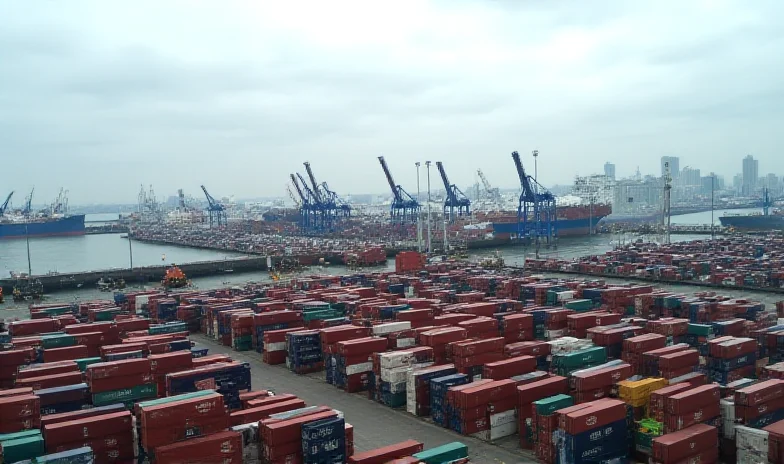Brussels – A new report from the European Public Prosecutor's Office (EPPO) has exposed a significant VAT fraud scheme involving imports from Chinese e-commerce platforms, with Belgium bearing the brunt of the losses.
According to the report, Belgium has suffered an estimated loss of €611 million due to fraudulent activities related to Value Added Tax (VAT) on goods imported from platforms such as Temu. The findings, also reported by De Standaard, highlight the scale of the problem and the challenges faced in regulating cross-border e-commerce.
The Scope of the Fraud
The EPPO report details how the VAT fraud was perpetrated, revealing weaknesses in the system that allowed significant revenue to be lost. The fraud primarily involves underreporting the value of imported goods, thereby evading the correct amount of VAT. This practice undermines fair competition and deprives the Belgian government of vital tax revenue.

The implications of this fraud are far-reaching, impacting not only Belgium's finances but also raising broader concerns about the regulation of e-commerce across Europe. As online shopping continues to grow, effective measures are needed to ensure fair tax collection and prevent further losses.
What's Next?
The EPPO's findings have prompted calls for stricter enforcement and better cooperation between member states to combat VAT fraud. The Belgian government is under pressure to address the loopholes that allowed this fraud to occur and to recover the lost revenue. Stricter controls on imports and better monitoring of e-commerce transactions are among the measures being considered.
According to the European Public Prosecutor’s Office, further details are available in the full article which outlines the implications of the fraud on tax collection and regulatory oversight in Europe.
A Call for Action
This incident serves as a wake-up call for policymakers and regulators to address the challenges posed by the rapidly evolving e-commerce landscape. Stronger international collaboration and innovative solutions are needed to ensure that VAT is collected fairly and that businesses operating online are held accountable.

The European Commission is expected to propose new measures to combat VAT fraud in e-commerce, including enhanced data sharing and improved enforcement mechanisms. These measures aim to create a level playing field for businesses and protect the interests of taxpayers across the EU.
The report also serves as a warning to other EU member states, highlighting the vulnerability of their VAT systems to similar fraud schemes. Increased vigilance and proactive measures are essential to prevent further losses and ensure the integrity of the single market.

